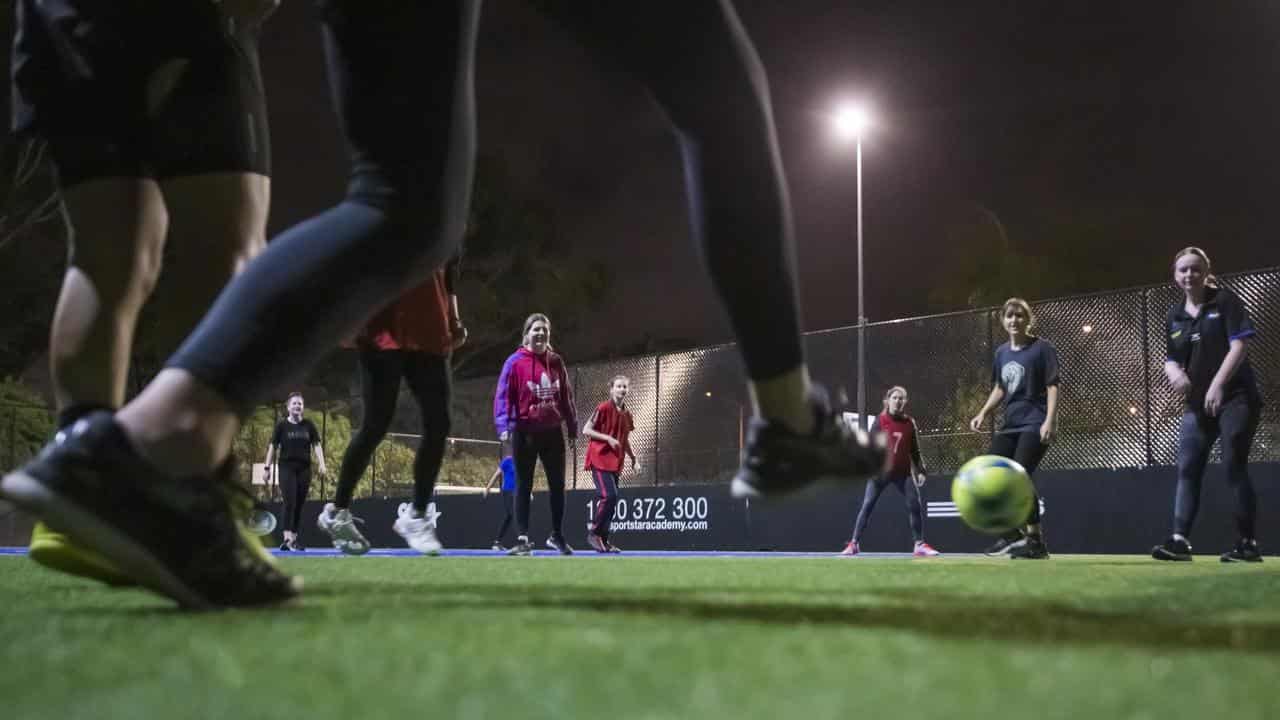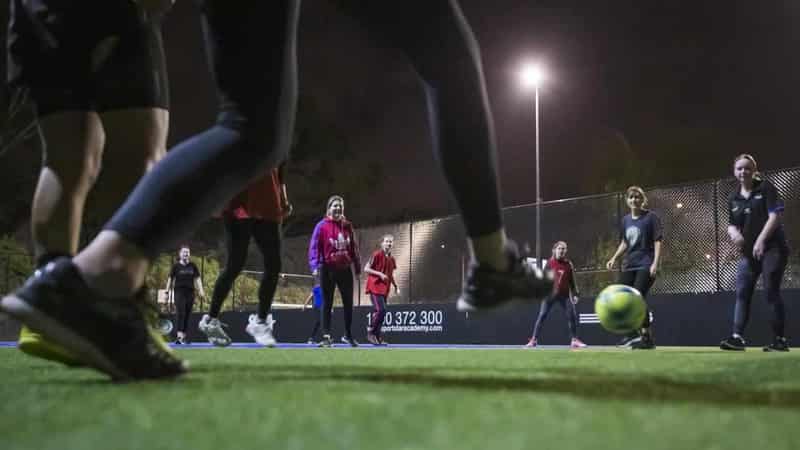
As the futsal season neared its end, Aish Ravi feared the break would lead to an exodus of her players.
“If they all leave and we don't have a regular connection, that's often when players drop off sport and move on to other things,” she said.
In 2019, the community futsal coach took it upon herself to keep the team connection going by forming Bayside Futsal Women and inviting players to come for a casual kick every week.
Ms Ravi’s playing group is part of a growing trend in community sports over the past decade where participation has shifted away from organised sports, such as formal clubs, and toward informal sports where people would come together and participate on their own.
Monash University professor Ruth Jeanes has been investigating participation trends and says younger marginalised groups within mainstream sporting settings are turning to informal participation.
Costs associated with formal sports can often be a barrier, and the inclusive nature of informal settings is a factor in the rise in informal participation, she says.
“Multicultural communities ... talk about it as being a safe space where they don't encounter the racism that they experience in more formal settings,” she said.
“They use it as a space to support each other through transition into Australian lifestyles and cultures.”
Bayside Futsal Women in Melbourne has welcomed people of diverse sexualities, abilities, and backgrounds with the promise of flexibility, Ms Ravi says.
“What this informal setting did is it removed a lot of those social pressures, where they didn't have to feel guilty for not coming in certain weeks or not playing a full game.”
With the rise in informal sports participation, Dr Jeanes says governments, sports and health agencies have a golden opportunity to harness the potential benefits of more than $3 million annually through physical, mental and social benefits.
"Rather than see these informal groups as a nuisance, actually see them as people who want to engage in sport and physical activity that local governments often have as a priority,” she said.
A key challenge for these informal sporting groups is being able to regularly access spaces, with many facing convoluted processes just to book, something Dr Jeanes is looking to change by developing policy frameworks for councils.
“If we ignore this and keep funnelling into more traditional forms of sport, we're going to ignore a whole section of participation that actually could grow, if supported.”
And with the hype from the Matildas’ historic World Cup run, Ms Ravi says informal sports participation can help grow the sport alongside formal clubs.
“With all this demand, clubs can't accommodate the (volume) and that can turn people away. We need informal sports so people can keep learning, playing, and having fun,” she said.









